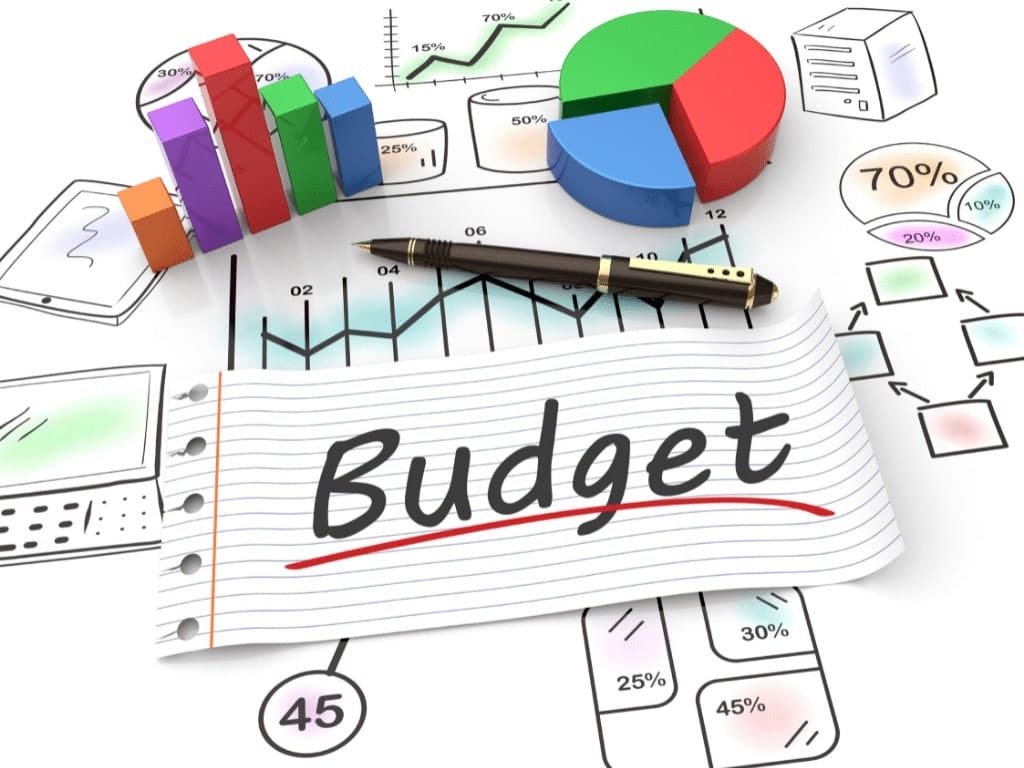Singapore’s Solidarity Budget for COVID-19 Explained
A third tranche of all COVID-19 support steps that includes money payouts and extra support for occupations will likely probably cost the Government S$5.1 billion, together with S$4 billion to be attracted out of Singapore’s reservations. The extra steps – including wage subsidies for each and every neighbourhood employee, money premiums for all adult citizens and more aid for its self-employed – will require the Government’s joint COVID-19 support bundle to S$59.9 billion,” said Deputy Prime Minister Heng Swee Keat on Monday as he declared the Solidarity Budget.
This increases the S$48.4 billion Resilience Budget published on Mar 26 along with the S$6.4 billion Unity Budget declared in February. The total budget deficit for FY2020 increases to S$44.3 billion or 8.9 percent of GDP, stated Mr Heng, who’s also the Finance Minister. Before, President Halimah Yacob had awarded her in-principle service for the authorities to draw to S$17 billion in previous reservations to finance a few of the steps in the Resilience Budget. “Together with the significantly stricter editorial steps required to safeguard Singaporeans and our own families, it’s now crucial for us to indicate a further draw on past reserves,” said Mr Heng. The President has contributed in-principle service to draw an extra S$4 billion in the reservations, ” he explained.
Tropika Club helps to break down the Solidarity Budget below:
Table of Contents
No Time to Read? Here’s a Snappy Summary of This Article
- Solidarity Payment: A one-off cash payment of S$600 for all adult Singaporeans aged 21 and above in 2020, credited directly into bank accounts by 14 April 2020 or issued by cheques starting from 30 April 2020.
- Jobs Support Scheme: A wage subsidy of 75% for the first $4600 of monthly wages paid in April 2020 for every local worker in employment, with different levels of support for different sectors for the remaining qualifying months.
- Self-Employed Person (SEP) Income Relief Scheme: A cash payout of S$3,000 each in May, July and October 2020 for eligible SEPs, with the annual value threshold raised from $13,000 to $21,000 to support more SEPs.
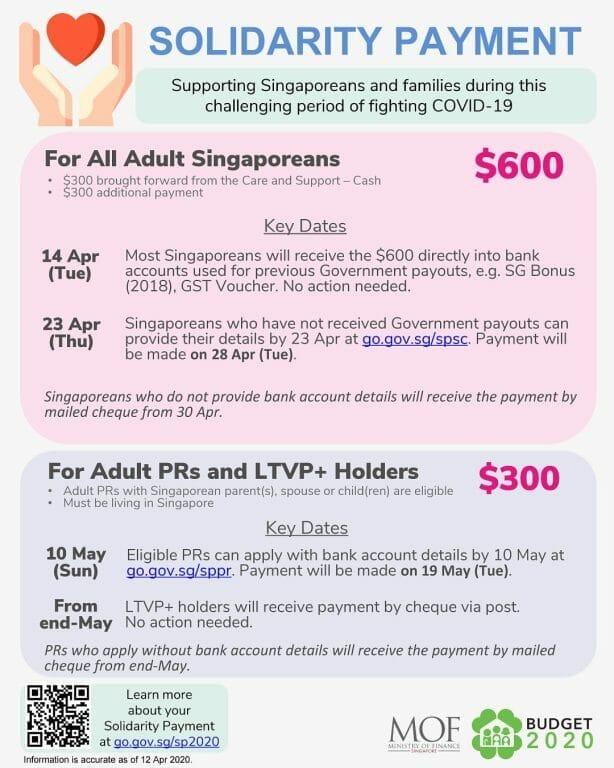
Solidarity Payment
- $600 for all Singaporeans aged 21 and above in 2020
- Payment will be credited directly into bank accounts by 14 April 2020, or issued by cheques starting from 30 April 2020
- This comprises of a new $300 payout, and $300 brought forward from Care and Support – Cash, which was originally to be paid out from Aug 2020.
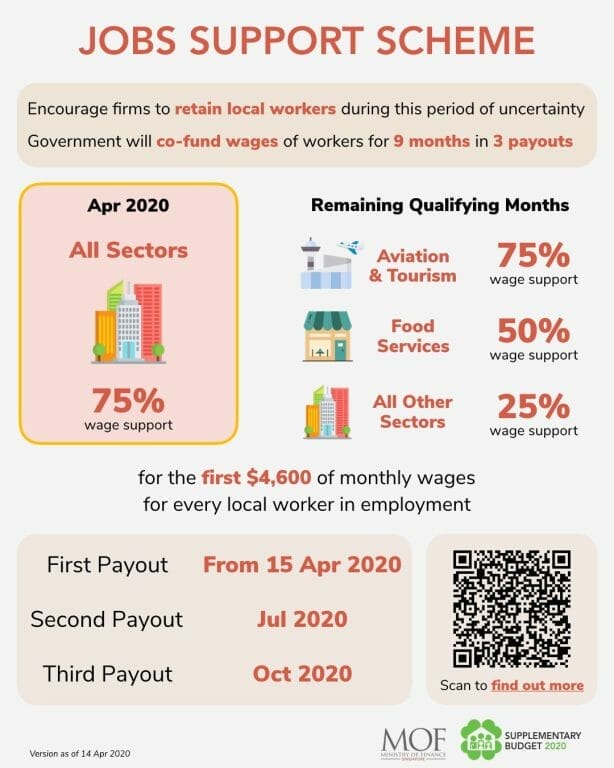
Jobs Support Scheme
- To help save jobs, Government will pay 75% of the first $4600 of monthly wages paid in April 2020, for every local worker in employment
- Wage support levels will be differentiated by sector for remaining qualifying months
- Firms will receive the first payout in April 2020, including the enhanced payout for April wages
- 75% wage support for aviation, accommodation, and tourism sectors. 50% for food services sectors, and 25% for all other sectors
Read: COVID-19 Circuit Breaker: What’s Allowed and Not Allowed?
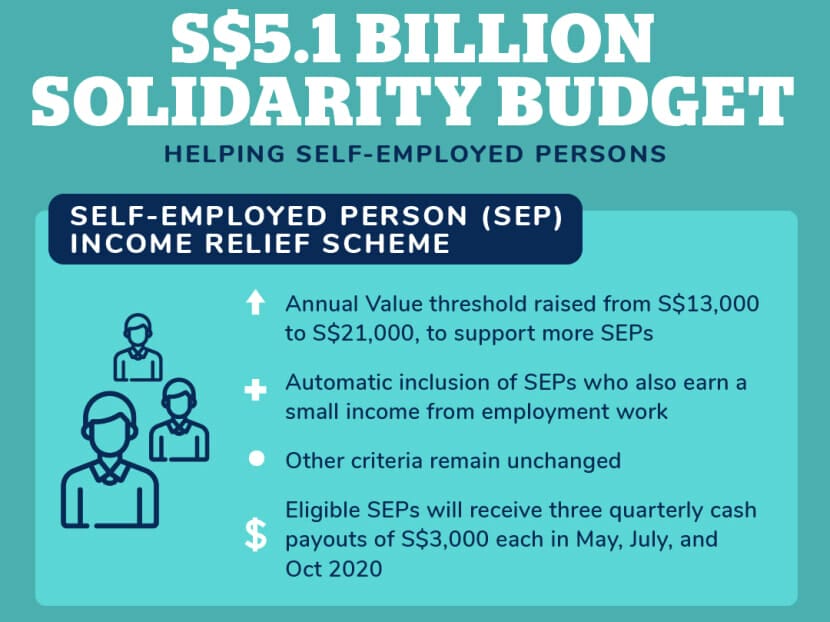
Self-Employed Person (SEP) Income Relief Scheme
- Annual Value threshold raised from $13,000 to $21,000 to support more SEPs
- Automatic inclusion of SEPs who also earn a small income from employment work
- Other criteria remain unchanged
- Eligible SEPs will receive three quarterly cash payouts of $3,000 each in May, July and October 2020.
Conclusion
The COVID-19 pandemic has hit Singapore hard, affecting the lives and livelihoods of many people. To help Singaporeans cope with the challenges and uncertainties, the government has rolled out three rounds of budget measures: the Unity Budget in February, the Resilience Budget in March, and the Solidarity Budget in April. These budgets provide a comprehensive package of support for individuals, families, businesses and workers.
In this article, we will explain what the Solidarity Budget is and how it benefits you. The Solidarity Budget was announced on 6 April 2020 by Deputy Prime Minister and Finance Minister Heng Swee Keat. It is a $5.1 billion supplementary budget that aims to save jobs, protect livelihoods and support households during the circuit breaker period from 7 April to 4 May 2020. The Solidarity Budget has four main components:
- Solidarity Payment: All adult Singaporeans aged 21 and above will receive a one-off cash payment of $600. This consists of a new $300 payout, and $300 brought forward from the Care and Support Package announced in the Resilience Budget. Most Singaporeans will receive the payment by 14 April 2020 through direct bank transfer, or by cheque from 30 April 2020.
- Jobs Support Scheme: The government will co-fund 75% of the first $4,600 of monthly wages for every local employee in all sectors for April 2020. This is an increase from the previous levels of wage support ranging from 25% to 75% depending on the sector. Firms will receive the first payout in April 2020, including the enhanced payout for April wages.
- Self-Employed Person Income Relief Scheme: The annual value threshold for eligible self-employed persons (SEPs) will be raised from $13,000 to $21,000 to include more SEPs. SEPs who qualify will receive three quarterly cash payouts of $3,000 each in May, July and October 2020.
- Enhanced Finance Support and Rental Waivers: The government will increase its risk share of loans to 90% for loans initiated from 8 April 2020 to 31 March 2021 under various schemes such as the Temporary Bridging Loan Programme and the Enterprise Financing Scheme. The government will also waive one month of rental for industrial, office and agricultural tenants of government agencies, and introduce a new bill to ensure that property owners pass on the property tax rebate to their tenants.
The Solidarity Budget is funded by an additional draw of $4 billion from past reserves, which has been approved by President Halimah Yacob. Together with the Unity Budget and the Resilience Budget, the total budget deficit for FY2020 will increase to $44.3 billion or 8.9% of GDP.
The Solidarity Budget is a timely and necessary response to the unprecedented crisis that we are facing as a nation. It shows the government’s commitment and solidarity with Singaporeans in this difficult time. It also reflects our collective strength and resilience as we overcome this challenge together.
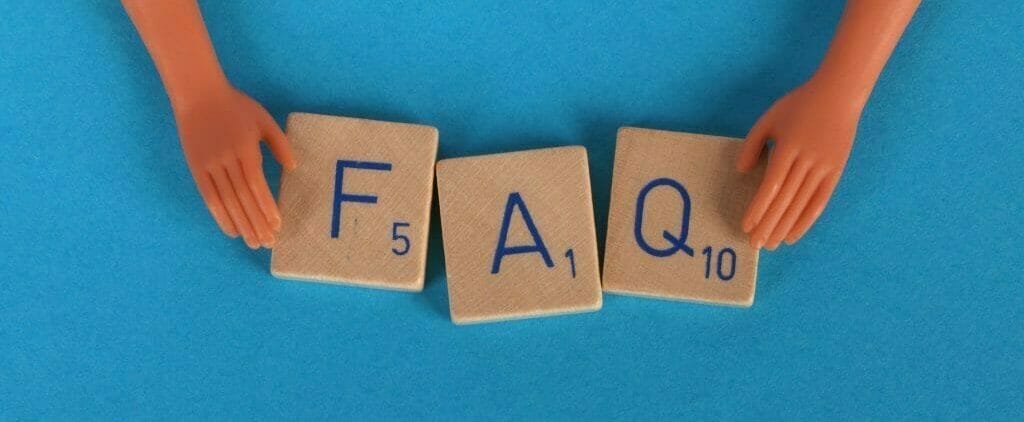
Frequently Asked Questions (FAQ)
Q: What is the Solidarity Budget?
A: The Solidarity Budget is a supplementary budget announced by the Singapore government on 6 April 2020 to provide additional support for households and businesses during the COVID-19 pandemic. It is the third budget of 2020, following the Unity Budget on 18 February 2020 and the Resilience Budget on 26 March 2020.
Q: How much will I receive from the Solidarity Budget?
A: Every adult Singaporean will receive a one-off $600 cash payout, which consists of a $300 payout from the previously announced Care and Support package, as well as an additional payout of $300. The payment will be credited directly into your bank account by 14 April 2020. If you have not provided your bank account details, you will receive the payment by cheque starting from 30 April 2020.
Q: What are the other benefits of the Solidarity Budget?
A: The Solidarity Budget also provides:
- A 75% wage subsidy for all local employees for April 2020, up from 25% to 75% depending on the sector
- A waiver of foreign worker levy due in April 2020 and a $750 rebate for each work permit or S pass holder
- A deferment of income tax payments for individuals and self-employed persons for three months
- A one-month rental waiver for tenants of government agencies and a half-month rental waiver for commercial tenants of private landlords who pass on the relief
- Enhanced financing support for businesses through higher risk-sharing by the government and lower interest rates
Q: How can I find out more about the Solidarity Budget?
A: You can visit the official website for more details and updates on the Solidarity Budget. You can also watch the video of Deputy Prime Minister and Finance Minister Heng Swee Keat delivering the Solidarity Budget statement in Parliament on 6 April 2020.
Q: How can I stay safe and healthy during the COVID-19 pandemic?
A: You can follow these tips to protect yourself and others from COVID-19:
- Stay at home as much as possible and avoid going out unless necessary
- Wear a mask when you go out and maintain a safe distance of at least one metre from others
- Wash your hands frequently with soap and water or use an alcohol-based hand sanitizer
- Avoid touching your eyes, nose and mouth with unwashed hands
- Cover your mouth and nose with a tissue or your elbow when you cough or sneeze
- Seek medical attention if you have fever, cough or difficulty breathing

Have an Article to Suggest?
Tropika Club is always looking for new and exciting content to feature in their magazine and they value the input of our readers. If you have any noteworthy content or articles that you believe would be a great addition to Tropika Club’s magazine, we are open to suggestions and encourage you to reach out to us via email at [email protected]. By doing so, Tropika Club values your expertise and knowledge in the matter and appreciates your willingness to help. We will review your recommendations and update our list accordingly
Meanwhile, Check Out Tropika Club’s Ecosystem of Websites

Tropika Club Magazine – Tropika Club Magazine is a Singapore-based publication that features articles on a wide range of topics with a focus on local businesses and content for the region. The magazine emphasizes supporting local businesses through its #SupportLocal initiative, which includes coverage of everything from neighborhood hawker stalls to aesthetic clinics in town. In addition to highlighting local businesses, Tropika Club Magazine also covers a variety of local content, including beauty, lifestyle, places, eats, and what’s on in Singapore and the Asia Pacific region.
Tropika Club Deals – Tropika Club Deals is a leading online deals and voucher shopping site in Singapore, offering amazing discounts on beauty, wellness, and fitness products and services. It’s the perfect platform for customers who want to discover the best deals without having to commit to a specific appointment date and time. These deals are available at major beauty stores, facial salons, hair salons, and other brands in Singapore, with no minimum spend required. Choose from guaranteed discounted deals in the categories of hairstyling, hair removal, facial & aesthetics, body slimming, brows & lashes, nails & makeup, massage & spa or fitness & wellness. Tropika Club Deals is also ideal for customers who want to buy vouchers as gifts or to use for the future. So whether you’re looking to save money on your next haircut or want to treat yourself to a relaxing massage, Tropika Club Deals has got you covered with the best voucher and coupon deals in Singapore!



